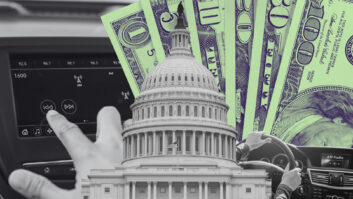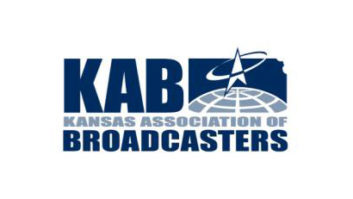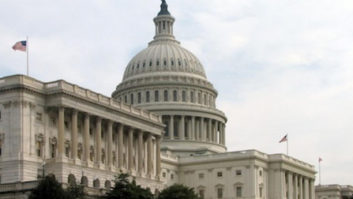There’s a new effort on Capitol Hill to try to resolve the music licensing controversy; the first reaction from NAB is that it’s “an important step” but that the association has “serious concerns.”
U.S. Reps. Doug Collins (R-Ga.) and Hakeem Jeffries (D-N.Y.) have introduced H.R. 4706, the Music Modernization Act of 2017, which is intended to address challenges introduced by today’s multiplatform music ecosystem.
Other co-sponsors include Reps. Joseph Crowley (D-N.Y.), Diane Black (R-Tenn.), Marsha Blackburn (R-Tenn.), Steve Cohen (D-Tenn.), Ted Lieu (D-Calif.) and Pete Sessions (R-Texas).
“The House Judiciary Committee has undertaken a thorough review of the issues that adversely affect stakeholders in the copyright ecosystem. We have heard a diverse array of perspectives, and it is clear that stakeholders on all sides believe the copyright system is outdated and needs reform, particularly in the area of music licensing,” Jeffries said in the announcement.
The bill tackles Section 115 reform, would institute a “wheel” approach to choosing judges for cases, changes the standard to require the court to consider free market conditions when determining rates, as well as Section 114(i) repeal.
Among other changes, it would create a Mechanical Licensing Collective (funded by “digital services” and “governed by publishers and self-published songwriters”), which would give the digital services “blanket mechanical licenses for interactive streaming or digital downloads of musical works.” Additionally, it would create a database to “identify songs that have not been matched to songwriters and/or publishers,” and publishers would also be able to claim the rights to and get paid for those songs.
The bill emphasizes the fact that existing rules were written prior to the advent of recorded music, let alone the age of streaming services.
The Music Modernization Act also would require the court to consider free market conditions when determining rates.
Also, the bill would change the system so that a district judge in the Southern District of New York would be randomly assigned for rate setting disputes, which “ensures that the judge will find the facts afresh for each rate case.”
The Music Modernization Act repeals Section 114(i), which bars rate court judges from considering sound recording royalty rates as a relevant benchmark when setting performance royalty rates, and would create a system “under which PROs and songwriters would have the opportunity to present evidence about the other facets of the music ecosystem.”
Several supportive comments from legislators and representatives from the music industry described the bill as a compromise between songwriters and the tech industry.
The National Association of Broadcasters had a more cautious response in statement released this afternoon.
“NAB appreciates the constructive efforts of Reps. Collins and Jeffries, as well as industry stakeholders, on issues addressed by the Music Modernization Act. The bill is an important step towards resolving critical issues faced by songwriters, music publishers, and on-demand streaming services to the benefit of those parties,” NAB Executive Vice President of Communications Dennis Wharton said in an emailed statement. “However, NAB has serious concerns about unrelated provisions in the bill that may unjustifiably increase costs for many music licensees, including local radio and TV broadcasters, who otherwise receive no benefit from the legislation. NAB looks forward to working with the bill sponsors and impacted parties to resolve our outstanding concerns.”












